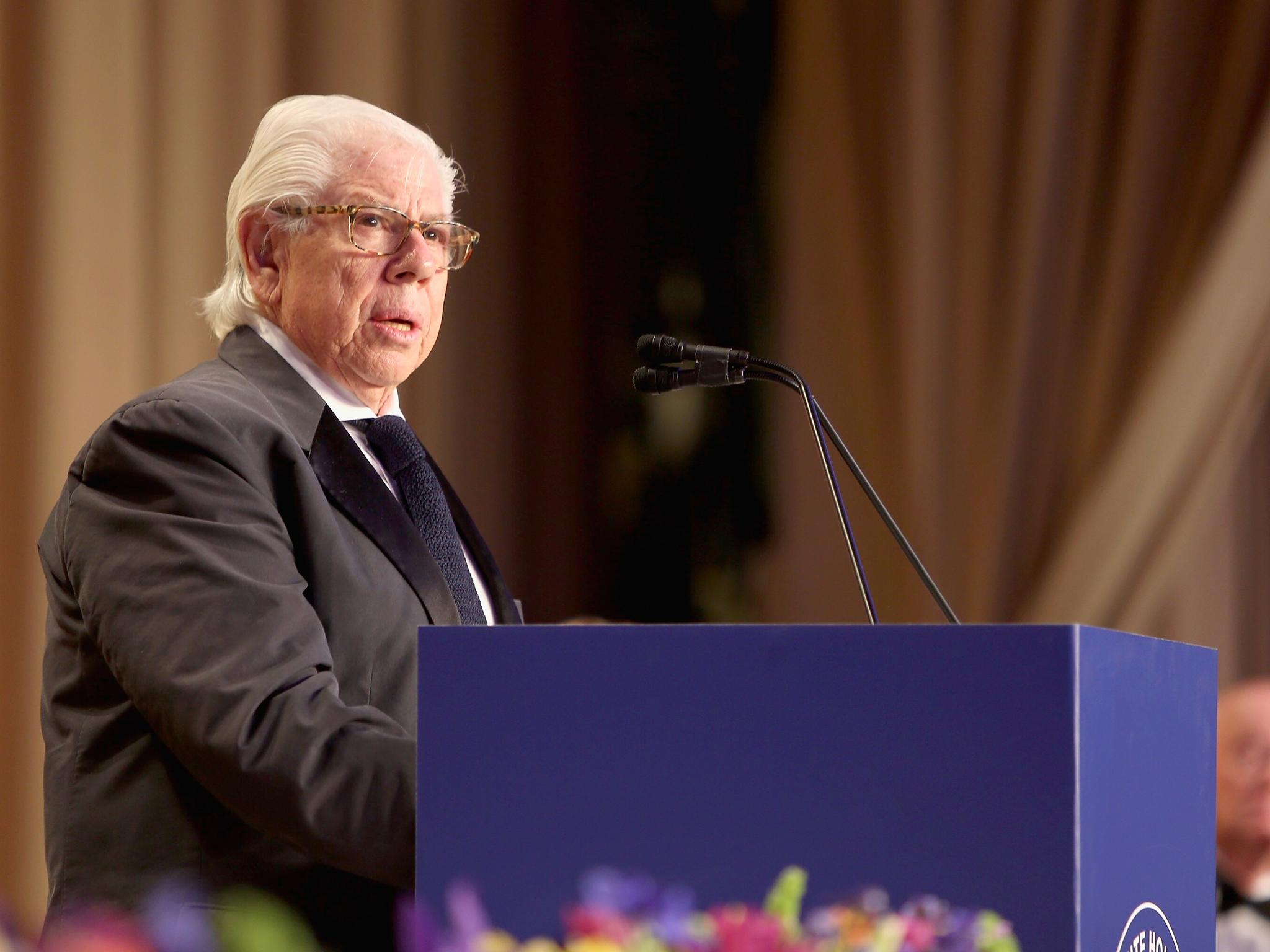Journalist who broke Watergate scandal says it is ‘clear Trump is presiding over a massive cover up’
He is not sure what Mr Trump is trying to keep from the public, but says he thinks it is big

Your support helps us to tell the story
From reproductive rights to climate change to Big Tech, The Independent is on the ground when the story is developing. Whether it's investigating the financials of Elon Musk's pro-Trump PAC or producing our latest documentary, 'The A Word', which shines a light on the American women fighting for reproductive rights, we know how important it is to parse out the facts from the messaging.
At such a critical moment in US history, we need reporters on the ground. Your donation allows us to keep sending journalists to speak to both sides of the story.
The Independent is trusted by Americans across the entire political spectrum. And unlike many other quality news outlets, we choose not to lock Americans out of our reporting and analysis with paywalls. We believe quality journalism should be available to everyone, paid for by those who can afford it.
Your support makes all the difference.One of the reporters who broke the Watergate scandal in the 1970s says that it is clear President Donald Trump is involved in some form of cover up.
Carl Bernstein, who investigated former President Richard Nixon's involvement in the Watergate hotel break-in, told CNN's Don Lemon that he thinks the evidence available is clear that Mr Trump is trying to keep something from the public.
"It's surreal that the country is at this juncture, and it's a tragedy for the country that we're at this juncture," Mr Bernstein said when asked for his perspective of the two scandals.
"It's very clear that the president of the United States is presiding over a massive cover up," he continued. "It's unclear exactly what he's covering up. But one of the differences between Watergate and this is that people in the Nixon White House largely believed, up until the end, that the president was not, in fact, covering up a great conspiracy. Whereas [for] many, many people in the Trump White House, and many who have left the Trump White House, it is now apparent to them that the president is presiding over a cover up, and a massive attempt to keep the truth from coming out about whatever has transpired."
When challenged for evidence of that, Mr Bernstein said that special counsel Robert Mueller's team, in its court filings as a part of its Russia investigation, has left plenty of clues that something is amiss.
The comments come less than a week after the FBI raided the offices and hotel room of Mr Trump's personal attorney, Michael Cohen. That raid was conducted by New York federal officials separately from Mr Mueller's probe, but was based upon findings from the special counsel investigation. The raids were widely seen as being potentially highly damaging to Mr Trump, as legal analysts suggested it would take a huge bar for federal prosecutors to risk violating attorney-client privilege — especially if the client is the president of the United States.
Mr Trump was reportedly incensed by the raid. It is unclear if his anger will lead to him taking any action against the Department of Justice or the special counsel's office, but Mr Trump himself has commented on the potential that he might fire Mr Mueller after a New York Times report indicated he had considered doing so as recently as December.
To fire Mr Mueller, the president would have to ask Deputy Attorney General Rod Rosenstein to do so, and it is unclear what Mr Rosenstein would say if asked to get rid of the investigator he himself installed following the firing of former FBI Director James Comey.
If Mr Rosenstein refused, Mr Trump could fire the deputy attorney general, and then ask the Justice Department's solicitor general to fire Mr Mueller.
Any of those actions would likely meet immediate condemnation, and would likely carry with them a heavy political cost.
Nixon himself did something similar in 1973, when he asked both his attorney general and deputy attorney general to fire a special prosecutor on the Watergate investigation. Both refused, and immediately tendered their resignation.
That incident, known as the "Saturday Night Massacre", prompted swift public outcry. The courts later deemed the action to have been illegal.
Nixon resigned less than a year later.
Join our commenting forum
Join thought-provoking conversations, follow other Independent readers and see their replies
Comments